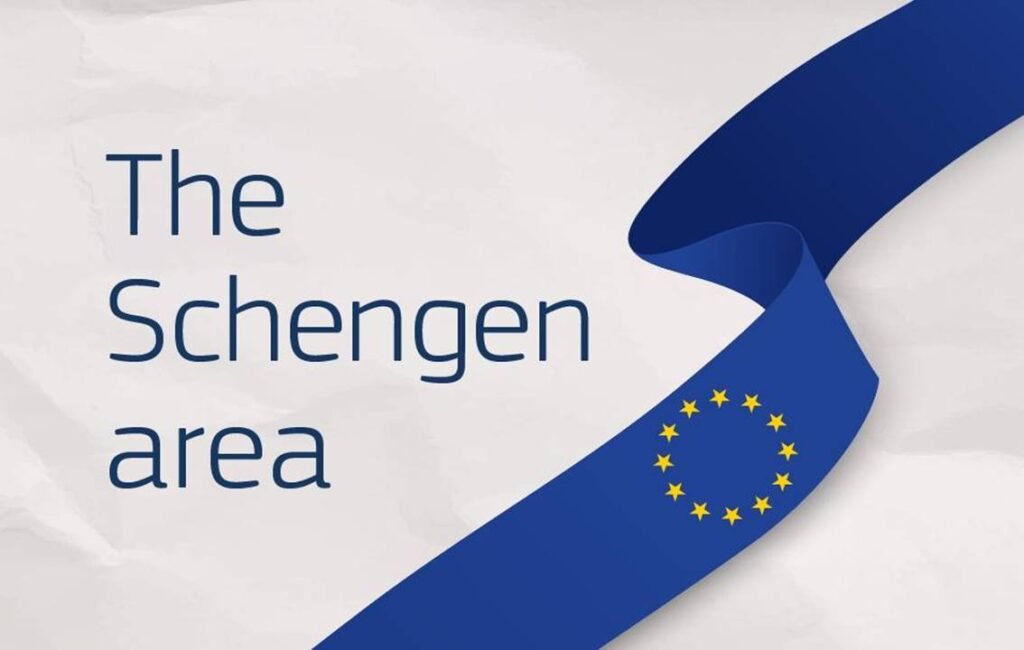


WHAT IS THE SCHENGEN AGREEMENT?
SCHENGEN REPRESENTS A UNIFIED EUROPE WITHOUT BORDERS
A BORDERLESS FRAMEWORK
The main aim of the Schengen Agreement is to allow European countries to establish a unified Europe without internal barriers. It has achieved this by establishing a borderless framework that has seen the abolishment of national borders amongst its members. This has enabled seamless movement across member countries, facilitating greater economic integration and cultural exchange.
JUNE 14TH 1985
Although the concept of free movement, within European Union countries, dates back to when the European Union was first formed after World War II, its implementation only gained traction during the 1980s. France and Germany took the lead after they proposed revisiting the idea of a borderless Europe. They then garnered support from other European nations, culminating in the signing of the Schengen Agreement on June 14th 1985.
REVOLUTIONISING BOTH TRAVEL & TRADE
The Schengen agreement today creates one of the world’s largest areas without internal border controls. The agreement, which takes its name from the picturesque village of Schengen, Luxembourg, where it was originally signed, has gone on to help revolutionise both travel and trade within the European Union. It has also gone on to help create a level playing field amongst its members, particularly concerning trade.
ALLOWING FOR SEEMLESS MOVEMENT
The original members of this agreement were France, Germany, Belgium, Luxembourg, and the Netherlands, but today the agreement encompasses a total of 26 European countries. Schengen membership dictates that each country agrees to abolish border control at their mutual borders. This means that people crossing each zone enjoy free and complete unregulated movement. Countries that are members also share a common visa policy. This enables all non-European Union travellers to move across member states without the hindrance of further border checks. This, in turn, fully promotes economic cooperation and cultural exchange, while enhancing the overall sense of a unified Europe.
EXTRA SECURITY
Security remains a huge factor within the Schengen framework. As a result, some non-European Union visitors arriving in Schengen zone countries can still be denied entry. These visitors need to show they have enough funds to sustain themselves for the duration of their trip. They also need to establish a form of proof for their reason for visiting. In this way, the Schengen agreement facilitates extra security for its member states.
CYPRUS & SCHENGEN
AN OPTIMISTIC VIEW
The Republic of Cyprus, having joined the European Union in 2004, is not yet part of the Schengen area. However, the process of joining has already begun. Cyprus, on several occasions, has demonstrated that it shares the European Union’s core values and objectives, which form the main foundation for joining the exclusive club. Presently, national visas issued by Cypriot embassies only grant entry to Cyprus, without permitting travel to other Schengen countries.
NO SOLID PLANS
The Republic of Cyprus constantly affirms its aspirations to join the Schengen Area. Although persistent, the reality of this happening remains far less likely than most predict. Most agree that several criteria for joining remain unfulfilled, and Cyprus has no solid plans to address this. With this in mind, it remains to be seen how Cyprus will achieve its goal of accession.
SEVERAL DISPUTES
Cyprus’s island geography, as well as its ongoing disputes over the national borders, present unique challenges for accessibility. The advantages of Schengen membership extend beyond its purely physical borders. Despite these challenges, the Republic has embarked on the path toward Schengen membership. The Republic of Cyprus has made significant progress in aligning its policies and practices with Schengen standards, emphasising the importance of open borders and the potential benefits associated with joining the Zone.
A PROFOUND SHIFT
Despite the island’s strategic location and its European Union membership, Cyprus remains outside of the Schengen Area for several multifaceted reasons. Its exclusion is primarily attributed to the overall political, security, and operational challenges arising from the island’s ongoing division. Its lack of direct control of all of its borders, along with the ongoing tensions with Turkey, remain problematic. This all creates an environment that raises significant implications for both Cyprus and the broader Schengen framework. If Cyprus were to join, it would signify a profound shift in the island’s socio-economic landscape. The process would have to involve some rigorous assessments of its border control mechanisms and legal frameworks.
WHY IS CYPRUS NOT INCLUDED?
The situation surrounding the island’s division, which is still separated by the ‘Green Line’, complicates the implementation of Schengen rules. Schengen requisites include comprehensive border control, as well as strict security measures. In addition to this, the presence of a non-European Union entity on the island not only raises concerns but severely complicates matters. All of this calls into question the island’s effective management of external borders, which is a main prerequisite for Schengen membership.
SIGNIFICANT IMPLICATIONS
For Cyprus to gain full Schengen membership, it would have to meet specific criteria related to security and governance. This would have to include a visa policy alignment that would need to be successfully integrated into the existing Schengen Area framework. Many feel that this is not possible within the current environment that exists on the island. There are also unresolved issues regarding immigration and internal security. Schengen membership mandates robust mechanisms for monitoring and controlling immigration flows. These have been put in place to ensure the safety of member states against any potential threats. The unique demographics and security concerns that are often raised in Cyprus necessitate additional considerations in this context. The island’s future inclusion is contingent upon resolving several of these intricate issues.
DIFFERING PERSPECTIVES
The political dynamics within the European Union also play a critical role in the island’s aspirations of joining the Schengen Area. Member states must collectively agree on the inclusion of new countries into the Schengen Model. The division of Cyprus often leads to differing perspectives. European Union members often refer to the implications of Turkish influence and the unresolved Cypriot political situation. They often state that until Cyprus implements a cohesive strategy to address these issues, the possibility of integrating the island into the Schengen framework remains limited.
EMBRACING THE POSSIBILITIES
While the path to Schengen membership requires fulfilling rigorous requirements, the progress made thus far instils confidence that Cyprus is on track to realise its goal of becoming an integral part of the Schengen Zone. As the island continues its journey toward Schengen membership, the potential benefits become increasingly evident. Streamlined travel, increased tourism, economic advantages, and enhanced security cooperation are among the advantages if its membership is approved. As the country embraces these possibilities, a more interconnected and prosperous future awaits Cyprus and its people.
THE BENEFITS OF JOINING SCHENGEN
If Cyprus were to join the Schengen Area, it would allow for unrestricted travel to and from other member states. This would potentially offer a welcome boost to tourism, further fostering economic growth for the island’s economy. Moreover, the island’s inclusion would also enhance the external borders of Schengen. This would improve geographical security in the Eastern Mediterranean, ultimately offering better border management for the region. The capacity to monitor and regulate migration flows should also be improved, addressing several concerns related to illegal immigration. Accession to the island would not only signify a pivotal advancement in its international relations and economic prospects but also contribute to its broader objectives of free movement and unity within Europe. Additionally, the integration of Cyprus into the Schengen framework would deepen the country’s ties with the European Union, reinforcing its position as a credible partner within European Union initiatives.
Some of the expected benefits gained from Schengen membership:
Streamlined Travel: Joining the Schengen Zone would provide Cypriots with seamless travel across member countries. This would eliminate the need for separate visas and border checks, making it easier for both tourists and business travellers to explore and engage with other Schengen countries.
Boost to Tourism: Cyprus, known for its natural beauty and rich history, attracts millions of tourists each year. Schengen membership would enhance the island’s tourism industry by simplifying travel arrangements for visitors. This increased accessibility would contribute to a surge in tourist numbers, further stimulating the economy and supporting local businesses.
Economic Advantages: The removal of internal border controls within the Schengen Zone results in cost savings and increased efficiency. By eliminating checkpoints and reducing bureaucratic processes, Cyprus can redirect resources toward economic development initiatives. Additionally, the free movement of goods and services within the zone fosters cross-border trade, creating new opportunities for businesses and stimulating economic growth.
Enhanced Security Cooperation: Schengen membership entails closer collaboration between members. It also encourages information sharing among member countries to ensure the security of the zone. Cyprus’s participation would provide access to shared databases and intelligence networks, strengthening cooperation in combating crime, terrorism, and other security threats, thereby enhancing overall safety.




